Activists hold a theatrical protest commemorating International Migrant Worker Day on 18 December in front of the Central Java Governor office in Semarang, Central Java. © Jurnasyanto Sukarno / Greenpeace
A fisher shares his story of forced labour in the high seas and how he’s taking action to help protect the rights of migrant workers in the fishing industry.
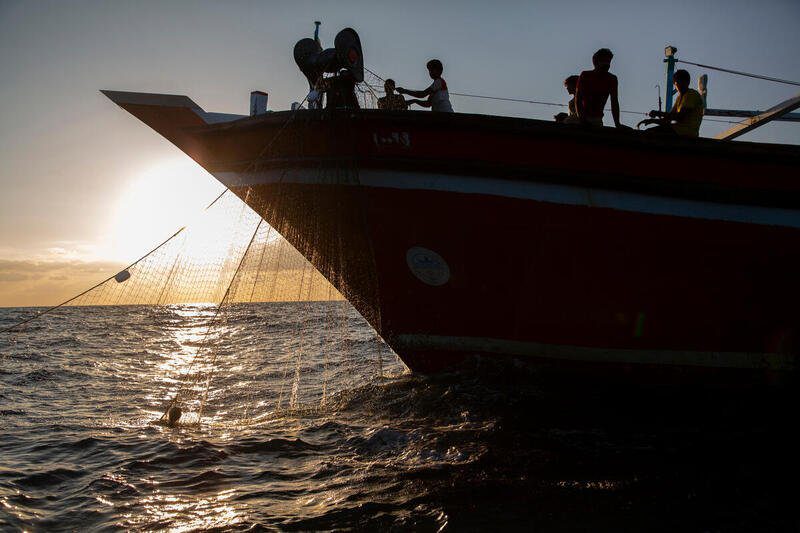
From 2019 to 2021, Pukaldi Saswanto did not touch land for 30 months whilst working on a fishing vessel. Originally from Bengkulu, a coastal province in Sumatra, Indonesia, Pukaldi had signed up with a recruitment agency to be a fisher based on a friend’s recommendation. His family, especially his mother, was against the idea of him taking on this job, which meant long stints away. But Pukaldi had persisted in hopes of a better future and to make enough money to get married.
After he was flown out to Fiji, he discovered that he was assigned to a longline fishing vessel that would sail out to the Pacific Ocean. On board, he was working 14 hour days hauling heavy loads of yellowfin tuna or rolling shrimp rolls, food that will eventually end up on our dinner plates. Pukaldi himself often went hungry and thirsty, subsisting on meager meals that would consist of rotten vegetables.
Living in cramped and uncomfortable conditions, he bonded with the 15 Indonesians on the ship but felt alienated from the rest of the crew, who mostly conversed in Mandarin and Vietnamese. Although he had not been physically harmed, Pukaldi had witnessed his friends getting kicked for not performing tasks well. With nowhere to escape, Pukaldi persisted, thinking if he just fulfilled his two-year contract, he’d at least be able to earn his money.
“I missed my family,” said Pukaldi, who had no way of communicating with them the entire time.
Pukaldi ended up working an additional six months over his contract before the other fishers on board the ship went on strike and refused to work. It would take him an additional three months to return to Indonesia.
After arriving back home, he was shocked to find that not a single rupiah from his entire salary of a few thousand dollars had been deposited into his bank account. The money would have been enough for him to get married and start a small business. Instead, he had nothing to show for the two and a half years he had endured at sea.
“How would you feel about that? I was just very tired by then,” he expressed.
Crime in the high seas
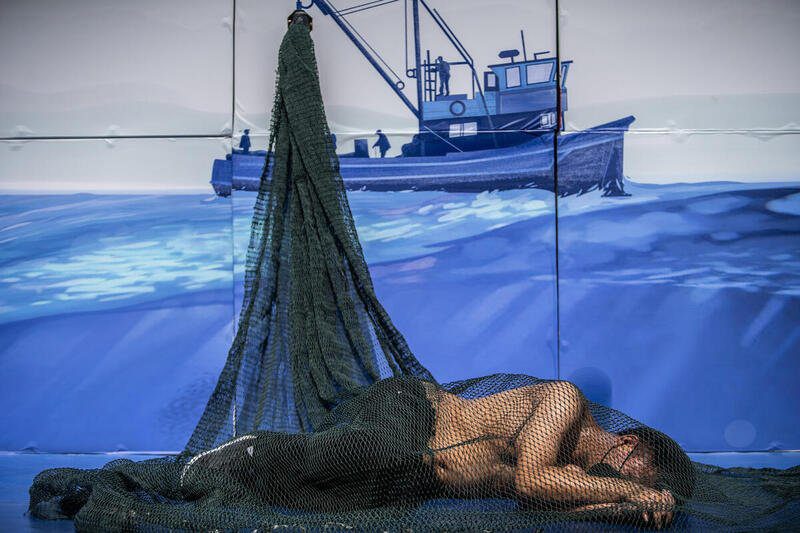
Pukaldi’s story is not uncommon in the world of unregulated deep sea fishing. According to various media reports and investigations over the years, migrant fishers, who are often employed from Southeast Asian nations, work on vessels sometimes for up to 20 hour shifts while having to endure physical abuse and discrimination.
For fishers like Pukaldi, his two and a half years away from land is due to a practice called transshipment: as overfishing is depleting fish stocks, vessels venture further into the high seas to catch fish. Secondary boats are used to help supply transfers and take catch back to port, leaving the “original vessel” to stay out at sea for months, even years, and often without the knowledge of its crew. It is through this systemic exploitation of migrant workers that the distant water fishing industry can be sustained.
“As we are trying to fight illegal, unreported, and unregulated (IUU) fishing practices that severely exploit our ocean’s natural resources, we found that the fishing industry also exploits its workers, particularly fishers on the fishing vessels. And, unfortunately, many of them are Indonesians,” said Greenpeace Indonesia Ocean Campaigner, Afdillah.
“In the Beyond Seafood campaign, we are fighting against the slavery practice. We believe that if we succeed in eliminating slavery at sea, we will at the same time successfully improve ocean governance to protect the natural resources.”
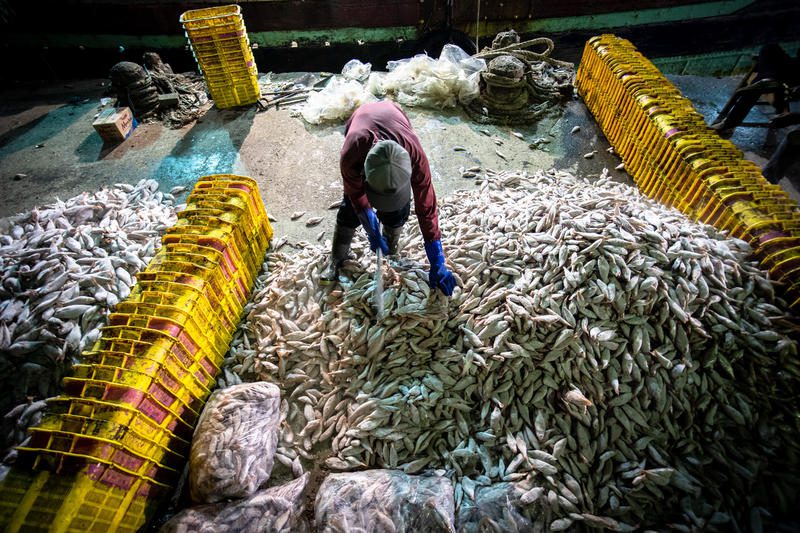
From 2013 to the end of 2021, Serikat Buruh Migran Indonesia (SBMI) – the Indonesian Migrant Workers Union – received 634 complaints of human rights violations against Indonesian crew members. SBMI is a labour union that seeks to protect the welfare and rights of Indonesian migrant workers, including migrant fishers.
In a 2021 joint report between SBMI and Greenpeace Southeast Asia, it found that between 2019-2020, forced labour indicators against migrant workers have increased and they include withholding of wages, abusive working and living conditions, deception, and the abuse of vulnerability.
Fighting for their rights
As Pukaldi’s recruitment agency had shut down and with no official recourse for action, he sought help from SBMI. Together with two other fishers, Jati Puji Santoso and Rizki Wahyudi, who had also suffered abuse at sea, they took action. They brought an administrative lawsuit against the President of the Republic of Indonesia for failing to ratify a government regulation that will enforce a 2017 law ensuring worker safety and rights within its two-year limit of issuance.
“It’s about our rights to be paid,” said Pukaldi.
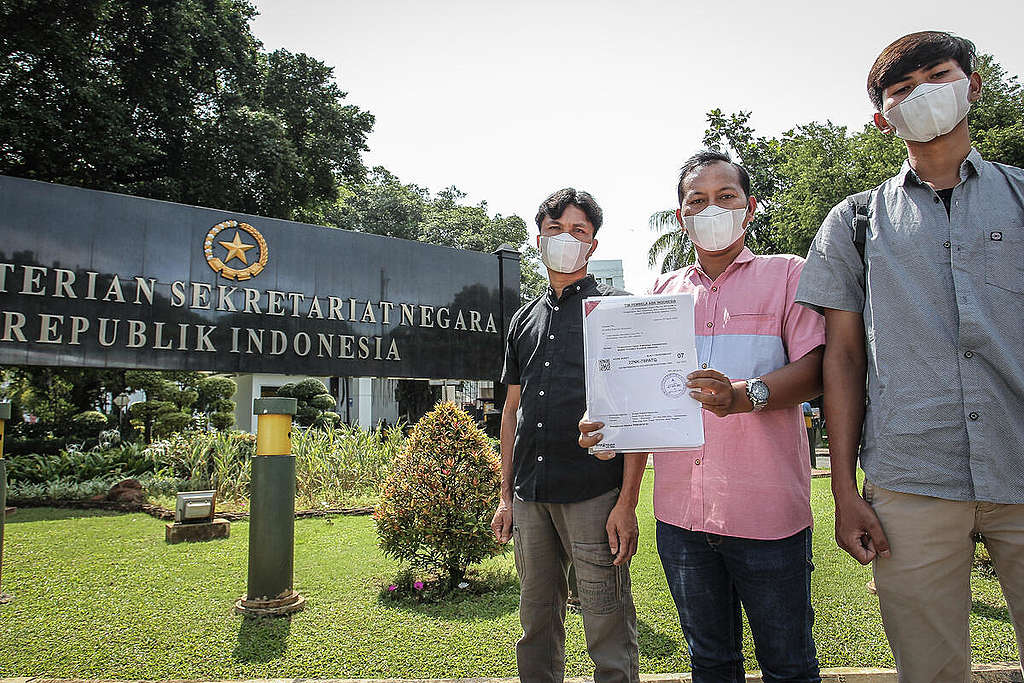
On 8th June 2022, almost five years after the original law had passed, the Indonesian government officially signed on to a government regulation that would give legal protection to Indonesian migrant workers on foreign flag fishing vessels. It is a significant milestone in the fight for the abolition of slavery and human rights abuse within the fishing industry, especially in Indonesia as one of the biggest sources of workers for distant water fishing vessels.
Since the signing of the regulation, the fishers have revoked their lawsuit.
“I’m glad that Indonesia has finally passed the regulation. This is a victory that significantly progresses our campaign. We are moving forward our efforts to realize a more just and humane governance for the migrant fishers recruitment and protection,” said Afdillah.
“The fight does not stop here. Moving forward, we will supervise the implementation of the regulation. We will also urge local governments from the provincial, regional, and municipal level, all the way to the villages to pay more attention to this issue and hopefully, have their own policies to strengthen the aforementioned regulation.”
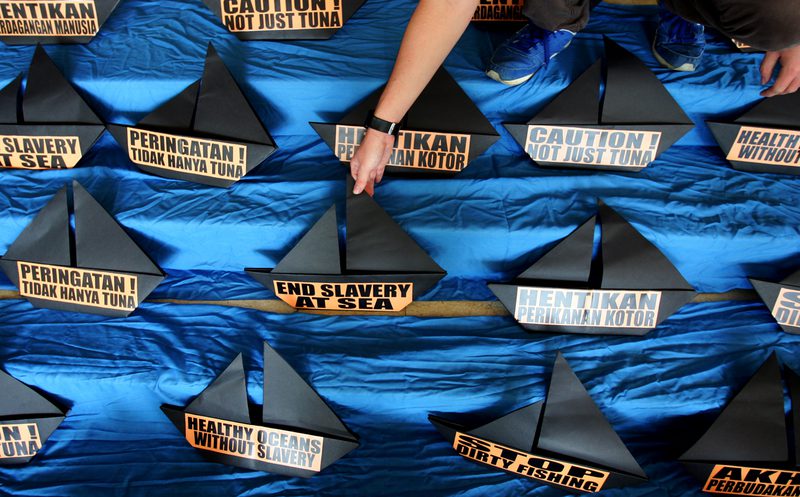
At present, Pukaldi is residing in Tegal, where he is helping out at the SBMI headquarters. He has yet to receive his salary from his time working on the vessel.
“There are still many companies that do not comply with the procedures. So hopefully, for anyone thinking of becoming a fisher, think about it first if you want to go. Don’t get trapped in this situation like us. As my salary has not been paid, it’s hard to go home. With the signing of the regulation, it is hoped that things will be better and that migrant fishers from Indonesia have some protection,” said Pukaldi.
“We hope that the government will immediately take actions as well as to punish those who are responsible for my unpaid wages to finish their job. We will continue this fight.”
Afdillah and Friska Kalia are Indonesia Ocean campaigner and Ocean digital communications coordinator, respectively, at Greenpeace Southeast Asia. Tan Lee Kuen is a content editor at Greenpeace International.
With additional support from Vela Andapita, Beyond Seafood digital communication coordinator at Greenpeace Southeast Asia and Kezia Saroinsong, content editor at Greenpeace International.
Indonesian version coming soon.
